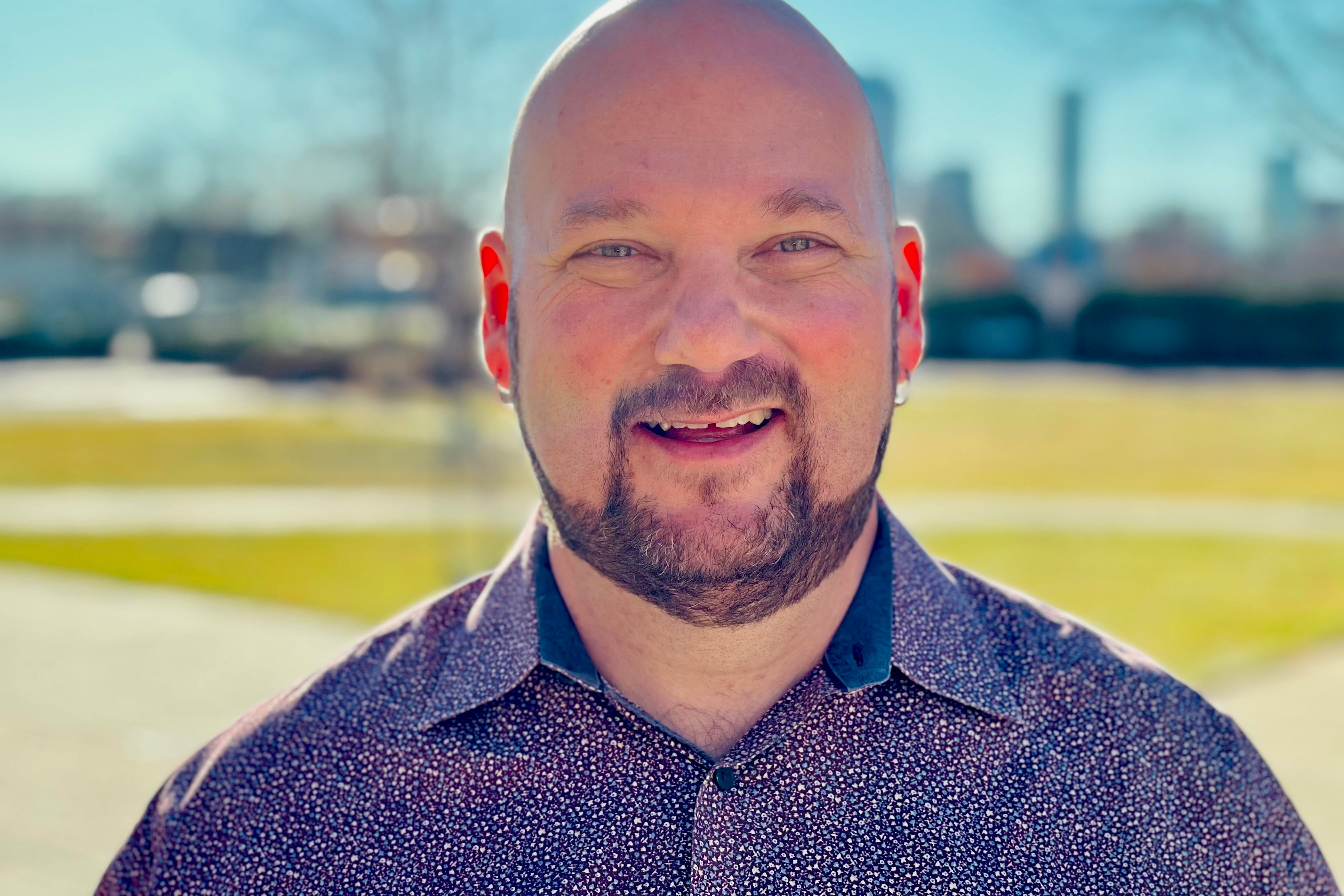A parent and former classroom educator who helped to open a comprehensive high school in Denver is running for an at-large seat on the school board.
Scott Esserman was on the founding staff of Denver’s Northfield High School, which opened in 2015 in northeast Denver. He also helped write the school’s first innovation plan, which grants it flexibility from certain district and state rules.
Esserman, 55, has two children, one of whom graduated last year from Denver’s Manual High School. His other child is an eighth grader at a charter school, DSST: Montview Middle School.
In all, 12 candidates are running for four open seats in the Nov. 2 election. The winners will help lead a district that is still navigating the COVID-19 pandemic and trying to make up for a year and a half of disrupted learning. The board will oversee a new superintendent, craft a new strategic plan, and grapple with several long-simmering issues, including declining enrollment and continued disagreement over the role of independent charter schools and semi-autonomous innovation schools.
A former teacher at private and public schools, including 12 years at neighboring Cherry Creek High School, Esserman is now an independent consultant specializing in diversity, equity, and inclusion issues. He is the volunteer chairperson of the Denver Public Schools accountability committee, an advisory group of parents and community members. He has also served on school-level advisory committees at four district-run schools.
Esserman said he is running for school board because his many years of experience volunteering and working in schools have been valuable, and because community members asked him, he said. Those requests came from all over the city, he said, which is partly why he’s running at large.
“I bring to bear a whole set of skills and talents from having served on boards, from having been in and of the community,” Esserman said, “and we’re at a point in particular coming out of COVID where we have an opportunity to really make some shifts in student outcomes.”
In running at large, Esserman also said he didn’t want to face off against sitting board President Carrie Olson, who is running for reelection in central-east Denver, where Esserman lives. Esserman praised Olson, calling her “an outstanding board member.”
If elected, Esserman said his primary focus would be improving student outcomes and erasing disparities. He believes strongly in the concept of “community schools.” He describes them as having several attributes, including culturally relevant curriculum, discipline practices focused on repairing harm rather than punishing students, and partnerships between schools and community organizations. Esserman helped a struggling middle school called Denver Discovery School write an innovation plan incorporating those elements.
“That community schools model ensures that what we’re doing is listening,” Esserman said. “If we’re in communities that are specifically experiencing job insecurity, then we’re working with community organizations to come into the school to provide job services for families.”
Denver Public Schools is Colorado’s largest school district, serving about 90,000 students. A little more than half of students are Hispanic, 26% are white, and 14% are Black. Its school board has seven members — five regional and two districtwide.
We asked Esserman about several key issues the district will face in the coming years.
Declining enrollment and a growing number of small schools: Changing how Denver funds its schools is a solution worth exploring, Esserman said. Currently each school’s budget is based on its enrollment, which means small schools miss out on the economies of scale that allow larger schools to pay for more robust arts and music programming, for example.
“There’s no law that our budgeting from the district to the schools has to be per pupil,” he said. “We have to look at, ‘What are the community’s needs? What do the schools need?’”
Esserman said he would not consider closing or consolidating schools without talking with impacted communities first. But instead of simply asking for community members’ opinions on a potential closure, Esserman said the district should lay out all the facts and ask communities to come up with possible solutions that may or may not involve closing schools.
Charter and innovation schools: Esserman is more interested in whether a school is serving students well than in whether it’s a traditional district school, an independent charter school, a semi-autonomous innovation school, or part of a larger innovation zone, he said.
“We have the ecosystem that we have,” Esserman said. “We have zones, we have charter schools. I can’t wave a magic wand and make those go away. And every moment that we spend discussing, arguing, debating [them] is one that we’re not spending on, ‘How are our schools, how are our teachers, best serving our students and our families?’”
Esserman is concerned that principals spend too much time marketing their schools. The combination of tying school budgets to enrollment, and Denver’s process of asking families to rank their top school choices, creates a situation where principals are forced to focus on recruiting new students rather than focusing on improving academic instruction, he said.
Improving education for Black and Hispanic students: Initiatives like the school board’s 2019 Black Excellence resolution that calls on the district to better serve Black students are “very much a step,” Esserman said. The board’s 2020 resolution mandating the district diversify its curriculum was another step in the right direction, he said.
If elected, Esserman said he’d look to build on those efforts.
“The more well-rounded the education that our students receive is, the more it takes into account varied perspectives, including our Hispanic community, including our Black community, the better we’re serving students,” he said.







